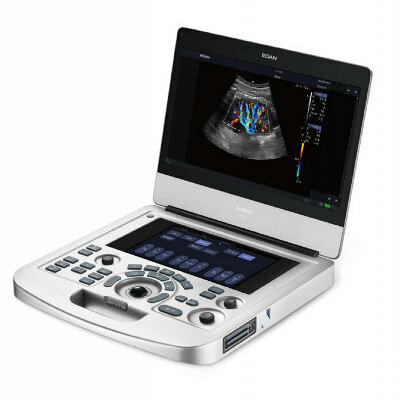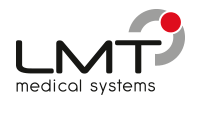New Machine Learning Model Flags Abnormal Brain Scans in Real-Time
|
By MedImaging International staff writers Posted on 22 Feb 2022 |

A new machine learning model can reduce reporting times for abnormal examinations by accurately flagging abnormalities at the time of imaging.
Researchers at King's College London (London, UK) have developed a deep learning framework based on convolutional neural networks to flag clinically relevant abnormalities at the time of imaging, in minimally processed, routine, hospital-grade axial T2-weighted head MRI scans. The work was motivated by delays in reporting of scans in hospitals. A growing national and international demand for MRI scans, alongside a shortage of radiologists, together have led to an increase in the time taken to report head MRI scans in recent years. Delays cause the knock-on effect that it takes longer for the correct treatment to be given to patients, and therefore poorer patient outcomes and inflated healthcare costs.
In a simulation study, the researchers found that their model reduced the wait times for reports for patients with abnormalities by about two weeks from 28 days to 14 days and from 9 days to 5 days. The current achievements are underpinned by a recent model which addresses one existing problem blocking overarching developments in the application of deep learning to imaging: the difficulty in obtaining large, clinically representative, accurately-labeled datasets. Whilst accessing large hospital datasets is achievable, the data are usually unlabelled. The deep learning framework based on convolutional neural networks used in the current study to flag clinically relevant abnormalities at the time of imaging, could not have been developed without this earlier work which allowed head MRI dataset labeling at scale.
In the current study, another step forwards towards clinical translation is that the researchers use routine, hospital-grade axial T2-weighted head MRI scans which have undergone little processing before triage analysis. This means head MRI scans can be used in the form that they arrive from the scanner which both cuts down from minutes to seconds the time that would otherwise be spent processing the images, but also allows more abnormalities to be detected in other areas captured by the head MRI – such as diseases in the skull, and around the eyes and nose. The speed and coverage of the abnormality detection system enables real-time applications.
“Our model can reduce reporting times for abnormal examinations by accurately flagging abnormalities at the time of imaging, thereby allowing radiology departments to priorities limited resources into reporting these scans first. This would expedite intervention by the referring clinical team,” said Dr. David Wood, Research Associate, School of Biomedical Engineering & Imaging Sciences.
“Having previously built and validated a labeled head MRI dataset using cutting edge machine learning methodology through a team of data scientists and hospital radiologists, the same team have now built and validated a new machine learning model that can triage head MRI scans so the abnormal scans can be at the front of the queue for reporting. The potential benefit to patients and healthcare systems is enormous,” added Dr. Thomas Booth, Senior Lecturer in Neuroimaging at the School of Biomedical Engineering & Imaging Sciences and Consultant Diagnostic and Interventional Neuroradiologist at King’s College Hospital.
Related Links:
King's College London
Latest MRI News
- PET/MRI Improves Diagnostic Accuracy for Prostate Cancer Patients
- Next Generation MR-Guided Focused Ultrasound Ushers In Future of Incisionless Neurosurgery
- Two-Part MRI Scan Detects Prostate Cancer More Quickly without Compromising Diagnostic Quality
- World’s Most Powerful MRI Machine Images Living Brain with Unrivaled Clarity
- New Whole-Body Imaging Technology Makes It Possible to View Inflammation on MRI Scan
- Combining Prostate MRI with Blood Test Can Avoid Unnecessary Prostate Biopsies
- New Treatment Combines MRI and Ultrasound to Control Prostate Cancer without Serious Side Effects
- MRI Improves Diagnosis and Treatment of Prostate Cancer
- Combined PET-MRI Scan Improves Treatment for Early Breast Cancer Patients
- 4D MRI Could Improve Clinical Assessment of Heart Blood Flow Abnormalities
- MRI-Guided Focused Ultrasound Therapy Shows Promise in Treating Prostate Cancer
- AI-Based MRI Tool Outperforms Current Brain Tumor Diagnosis Methods
- DW-MRI Lights up Small Ovarian Lesions like Light Bulbs
- Abbreviated Breast MRI Effective for High-Risk Screening without Compromising Diagnostic Accuracy
- New MRI Method Detects Alzheimer’s Earlier in People without Clinical Signs
- MRI Monitoring Reduces Mortality in Women at High Risk of BRCA1 Breast Cancer
Channels
Radiography
view channel
Novel Breast Imaging System Proves As Effective As Mammography
Breast cancer remains the most frequently diagnosed cancer among women. It is projected that one in eight women will be diagnosed with breast cancer during her lifetime, and one in 42 women who turn 50... Read more
AI Assistance Improves Breast-Cancer Screening by Reducing False Positives
Radiologists typically detect one case of cancer for every 200 mammograms reviewed. However, these evaluations often result in false positives, leading to unnecessary patient recalls for additional testing,... Read moreUltrasound
view channel
Deep Learning Advances Super-Resolution Ultrasound Imaging
Ultrasound localization microscopy (ULM) is an advanced imaging technique that offers high-resolution visualization of microvascular structures. It employs microbubbles, FDA-approved contrast agents, injected... Read more
Novel Ultrasound-Launched Targeted Nanoparticle Eliminates Biofilm and Bacterial Infection
Biofilms, formed by bacteria aggregating into dense communities for protection against harsh environmental conditions, are a significant contributor to various infectious diseases. Biofilms frequently... Read moreNuclear Medicine
view channel
New SPECT/CT Technique Could Change Imaging Practices and Increase Patient Access
The development of lead-212 (212Pb)-PSMA–based targeted alpha therapy (TAT) is garnering significant interest in treating patients with metastatic castration-resistant prostate cancer. The imaging of 212Pb,... Read moreNew Radiotheranostic System Detects and Treats Ovarian Cancer Noninvasively
Ovarian cancer is the most lethal gynecological cancer, with less than a 30% five-year survival rate for those diagnosed in late stages. Despite surgery and platinum-based chemotherapy being the standard... Read more
AI System Automatically and Reliably Detects Cardiac Amyloidosis Using Scintigraphy Imaging
Cardiac amyloidosis, a condition characterized by the buildup of abnormal protein deposits (amyloids) in the heart muscle, severely affects heart function and can lead to heart failure or death without... Read moreGeneral/Advanced Imaging
view channel
New AI Method Captures Uncertainty in Medical Images
In the field of biomedicine, segmentation is the process of annotating pixels from an important structure in medical images, such as organs or cells. Artificial Intelligence (AI) models are utilized to... Read more.jpg)
CT Coronary Angiography Reduces Need for Invasive Tests to Diagnose Coronary Artery Disease
Coronary artery disease (CAD), one of the leading causes of death worldwide, involves the narrowing of coronary arteries due to atherosclerosis, resulting in insufficient blood flow to the heart muscle.... Read more
Novel Blood Test Could Reduce Need for PET Imaging of Patients with Alzheimer’s
Alzheimer's disease (AD), a condition marked by cognitive decline and the presence of beta-amyloid (Aβ) plaques and neurofibrillary tangles in the brain, poses diagnostic challenges. Amyloid positron emission... Read more.jpg)
CT-Based Deep Learning Algorithm Accurately Differentiates Benign From Malignant Vertebral Fractures
The rise in the aging population is expected to result in a corresponding increase in the prevalence of vertebral fractures which can cause back pain or neurologic compromise, leading to impaired function... Read moreImaging IT
view channel
New Google Cloud Medical Imaging Suite Makes Imaging Healthcare Data More Accessible
Medical imaging is a critical tool used to diagnose patients, and there are billions of medical images scanned globally each year. Imaging data accounts for about 90% of all healthcare data1 and, until... Read more
Global AI in Medical Diagnostics Market to Be Driven by Demand for Image Recognition in Radiology
The global artificial intelligence (AI) in medical diagnostics market is expanding with early disease detection being one of its key applications and image recognition becoming a compelling consumer proposition... Read moreIndustry News
view channel
Bayer and Google Partner on New AI Product for Radiologists
Medical imaging data comprises around 90% of all healthcare data, and it is a highly complex and rich clinical data modality and serves as a vital tool for diagnosing patients. Each year, billions of medical... Read more




















